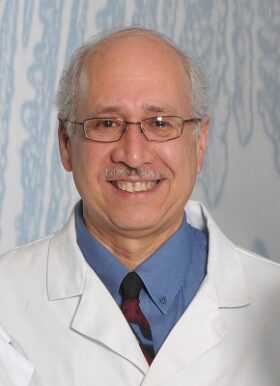
Victor G. Davila-Roman, MD, FACC, FASE
Professor of Medicine, Anesthesiology, and Radiology
Medical Director, Cardiovascular Imaging and Clinical Research Core Laboratory
Director, Global Health Center, Institute for Public Health
- Phone: 314-362-1291
- Fax: 314-747-8170
Related Links
Education
- BS in Biology: University of Puerto Rico, Mayaguez, Puerto Rico, USA (1977)
- Medical Doctor: University of Puerto Rico School of Medicine, San Juan, Puerto Rico, USA (1981)
- Internal Medicine Internship: Brooke Army Medical Center, Fort Sam Houston, San Antonio, TX (1982)
- Internal Medicine Residency: The Jewish Hospital of St. Louis, St. Louis, MO (1988)
- Cardiology Fellowship: The Jewish Hospital of St. Louis, St. Louis, MO (1990)
- Advanced Echocardiographic Fellowship: Barnes Hospital, Washington University School of Medicine, St. Louis, MO (1991)
- Nuclear Cardiology Residency, Mallinckrodt Institue of Radiology, Division of Nuclear Medicine: Washington University School of Medicine, St. Louis, MO (1995)
Board Certifications
- Cardiovascular Disease
- Echocardiography
- Nuclear Medicine
Recognition
- American College Cardiology / European Society Cardiology International Academic Exchange Program, 1998
- Jewish Hospital Biomedical Research Support Grant (BSRG), 1990
- U.S. Army Commendation Medical, 1986
Clinical Interests
Cardiomyopathy; magnetic resonance imaging; myocardiology; hypertension; vascular surgery; coronary artery disease; supervising and interpreting diagnostic tests, such as echocardiograms, stress echocardiograms, treadmill stress test, Holter, event and loop monitors.
Research Interests
Research interests include the study of hypertension (HTN), a disease that affects over 65 million Americans and one of the most common chronic diseases in the world. Hypertensive heart disease (HHD)-endophenotypes, including left ventricular hypertrophy, LV diastolic dysfunction, LV systolic dysfunction, and vascular hypertrophy are common and inter-related. Furthermore, HHD-endophenotypes are worsened by co-morbid conditions such as diabetes, obesity, metabolic syndrome, and dyslipidemia, thus suggesting that common underlying pathologic processes control/modulate these phenotypes through gene-gene and/or gene-environment interactions. Genes involved in myocardial metabolism and inflammation have been postulated as modulators of these highly complex endophenotypes. Through our large cardiovascular disease phenotype-genotype repository, we are conducting a genome-wide association study where important genes will be associated with quantitative HHD-endophenotypes.